AP World History Unit 4: Transoceanic Interconnections
1/29
There's no tags or description
Looks like no tags are added yet.
Name | Mastery | Learn | Test | Matching | Spaced |
|---|
No study sessions yet.
30 Terms
Caravel
A small, highly maneuverable three-masted ship used by the Portuguese and Spanish in the exploration of the Atlantic; used for long voyages at great speed from 15th to 17th centuries; used for exploration, not trade

Carrack
a large trading merchant ship operating in European waters (especially by the Portuguese) in the 14th to the 17th century.
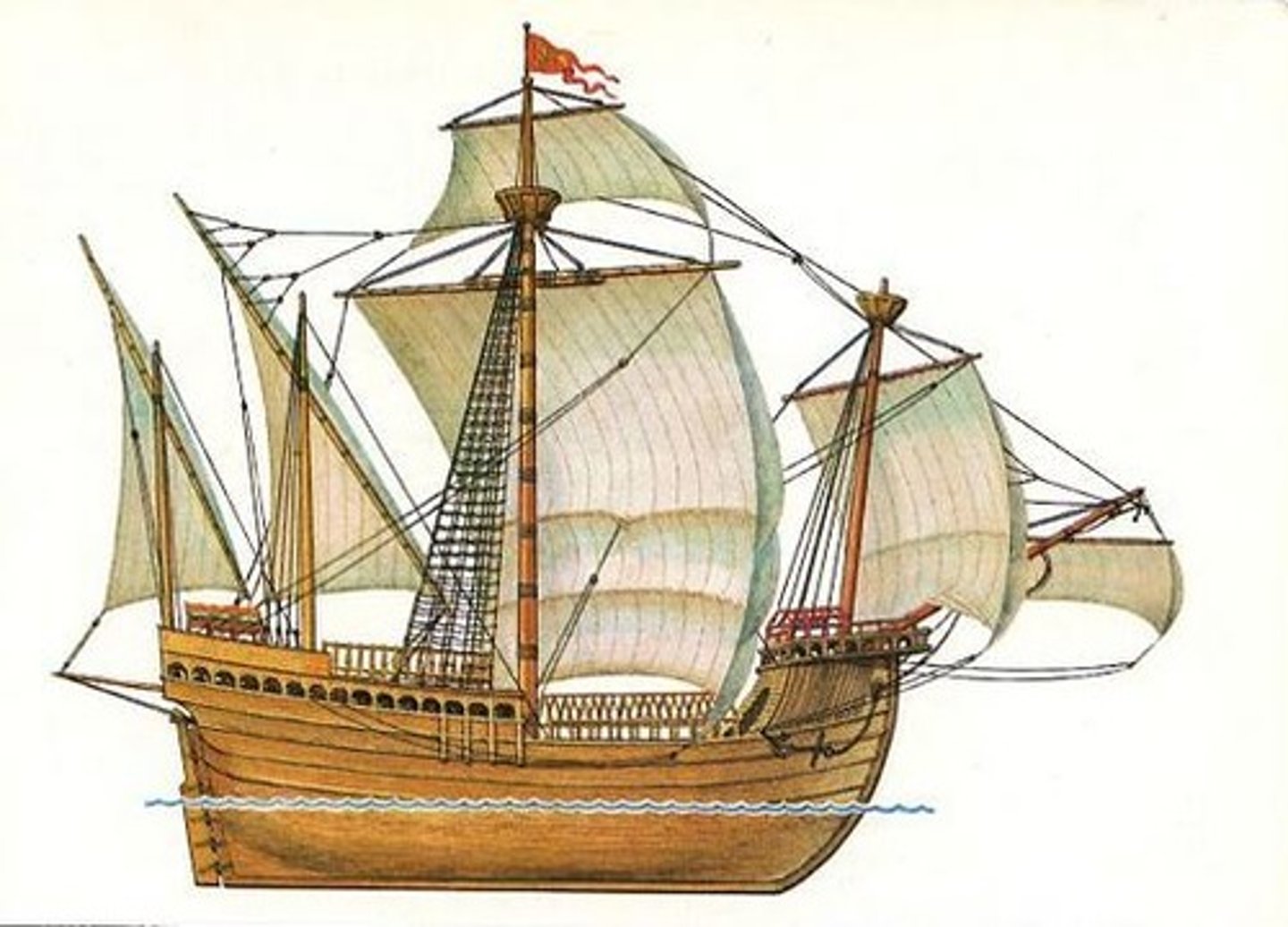
Fluyt
Dutch sailing vessel that allowed them to control the Baltic trade; designed to facilitate transoceanic delivery with max space and crew efficiency; used from 16th to 17th centuries
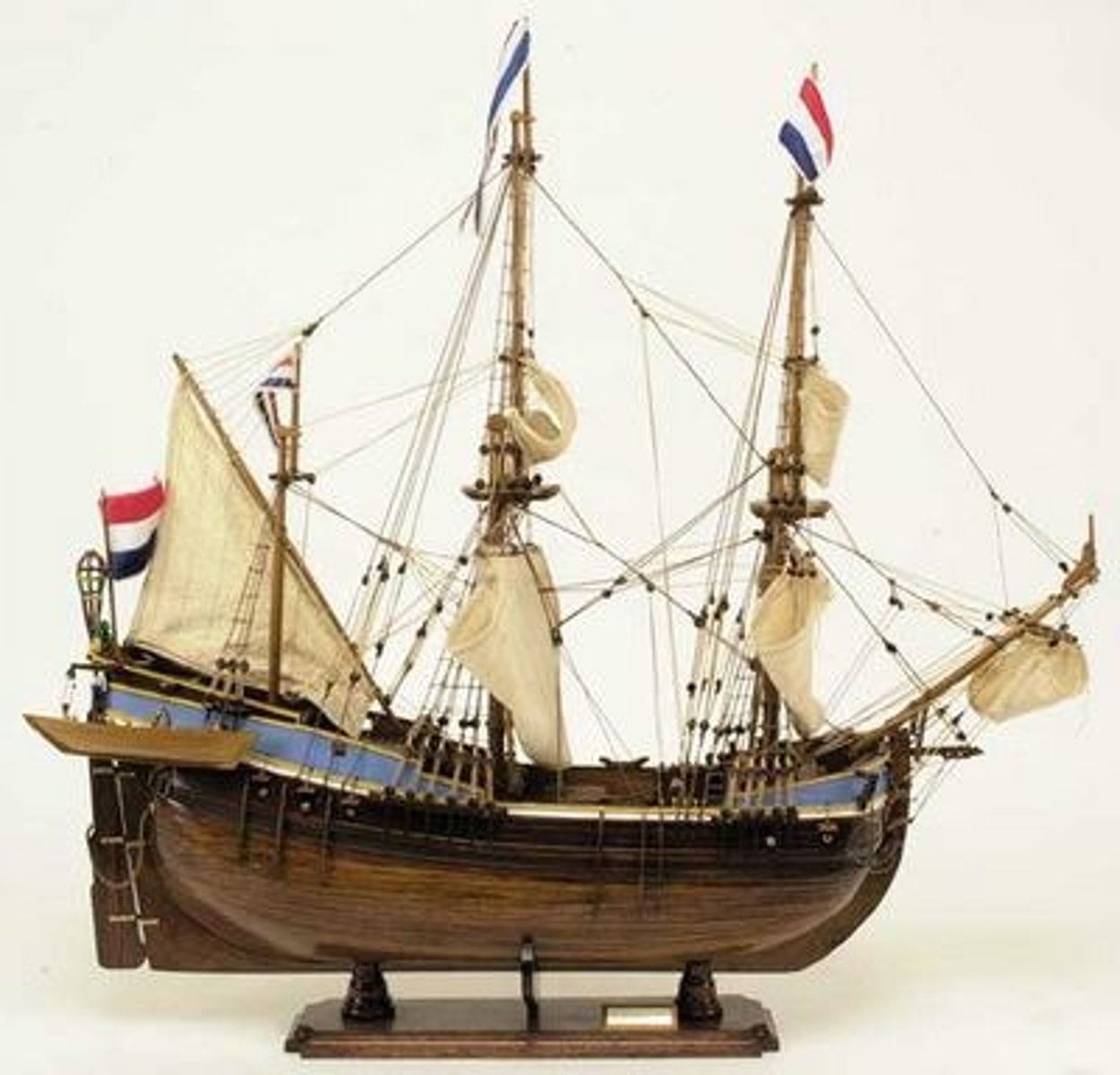
Henry the Navigator
(1394-1460) Portuguese prince who promoted the study of navigation and directed voyages of exploration down the western coast of Africa; sponsored seafaring expeditions to search for an all-water route to the east; imported enslaved Africans via the sea
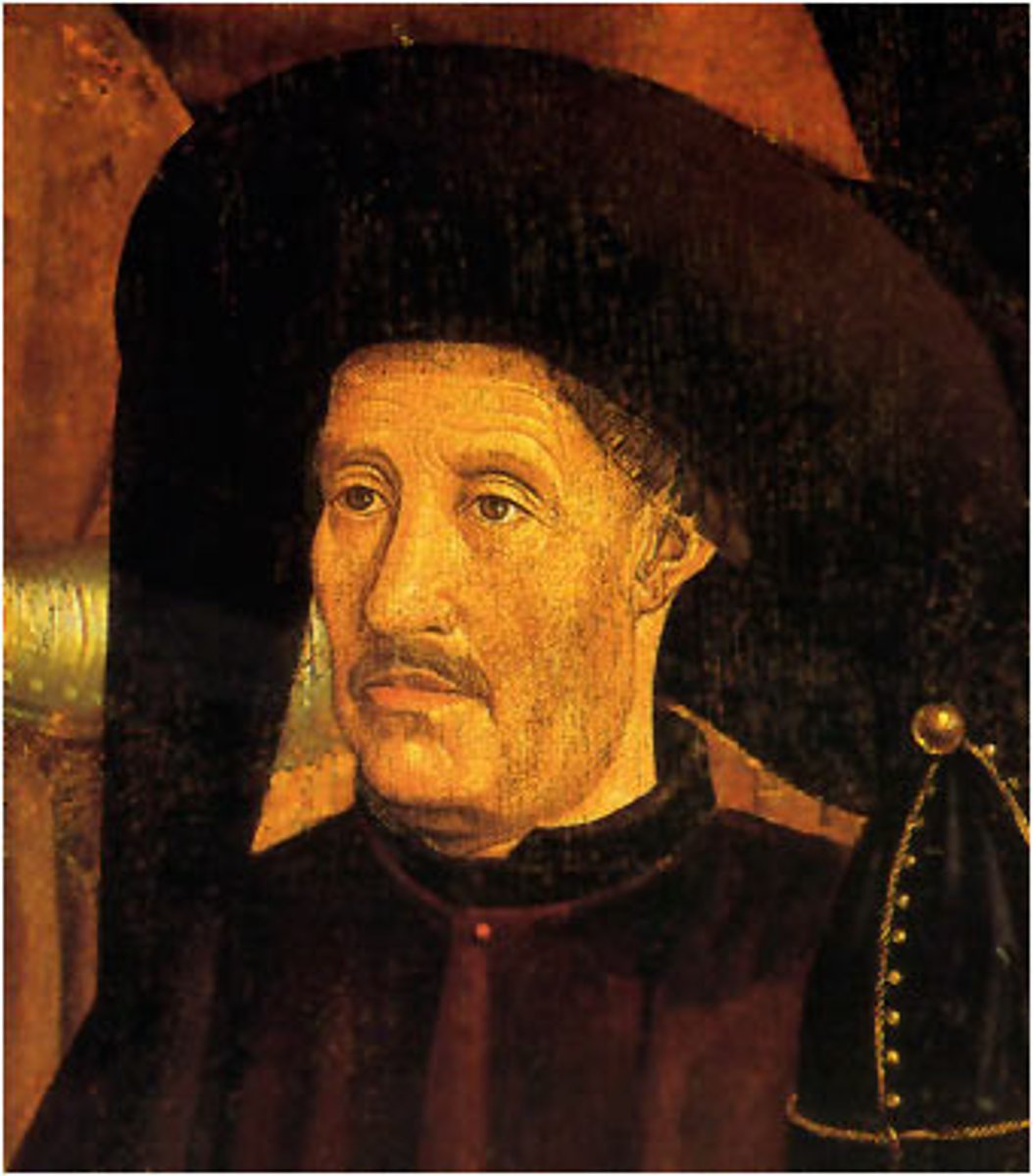
Vasco da Gama
Portuguese explorer. In 1497-1498 he led the first naval expedition from Europe to sail to India, opening an important commercial sea route for Europeans
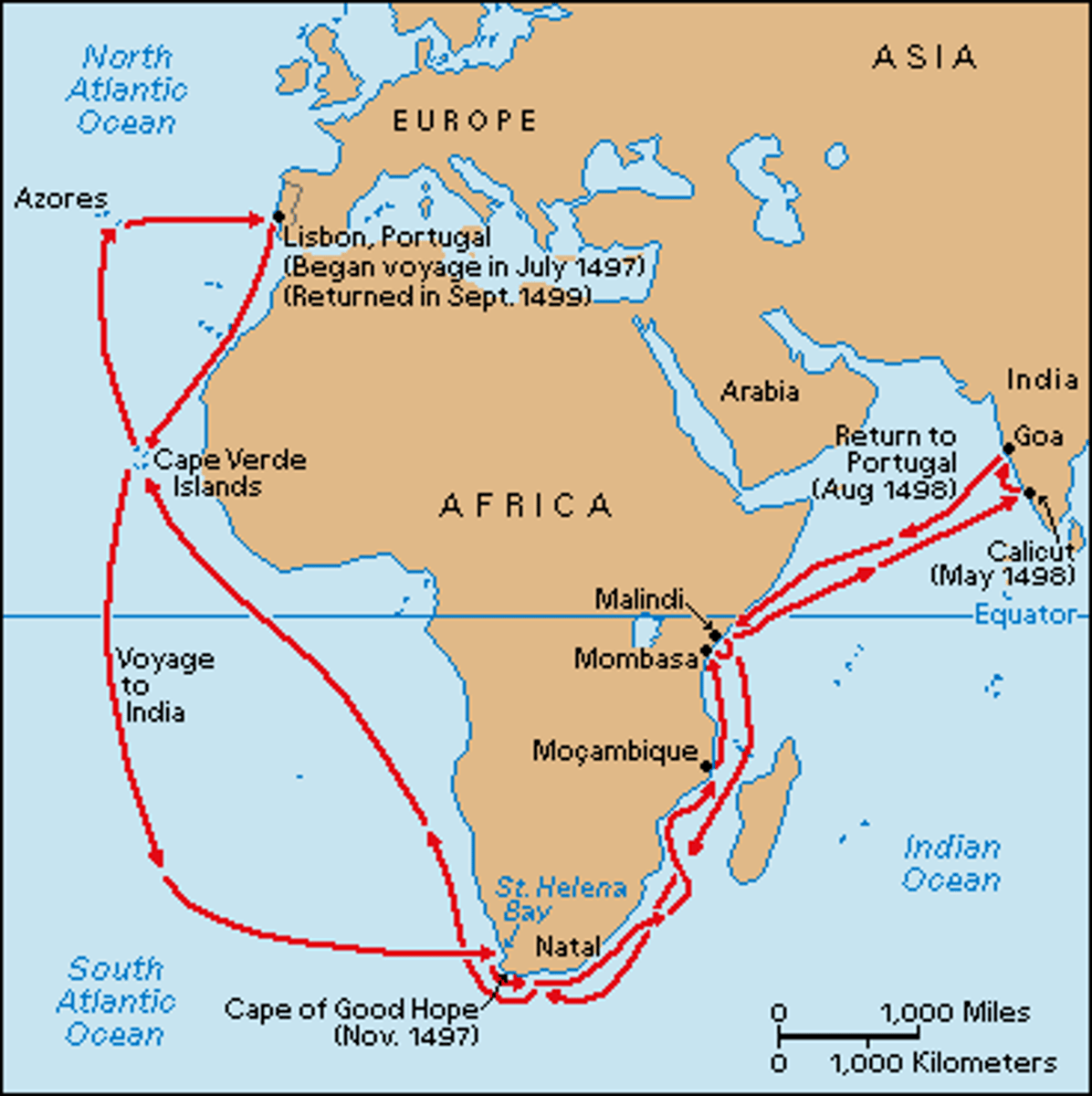
Ferdinand Magellan
Portuguese navigator who led the Spanish expedition of 1519-1522 that was the first to sail around the world.
trading post empire
Form of imperial dominance based on control of trade rather than on control of subject peoples; practiced by Europeans in the Indian Ocean as they took over trade from Arab and Muslim merchants
Christopher Columbus
Italian navigator who discovered the New World in the service of Spain while looking for a route to China (1451-1506)
Columbian Exchange
The exchange of plants, animals, diseases, and technologies between the Americas and the rest of the world following Columbus' voyages.
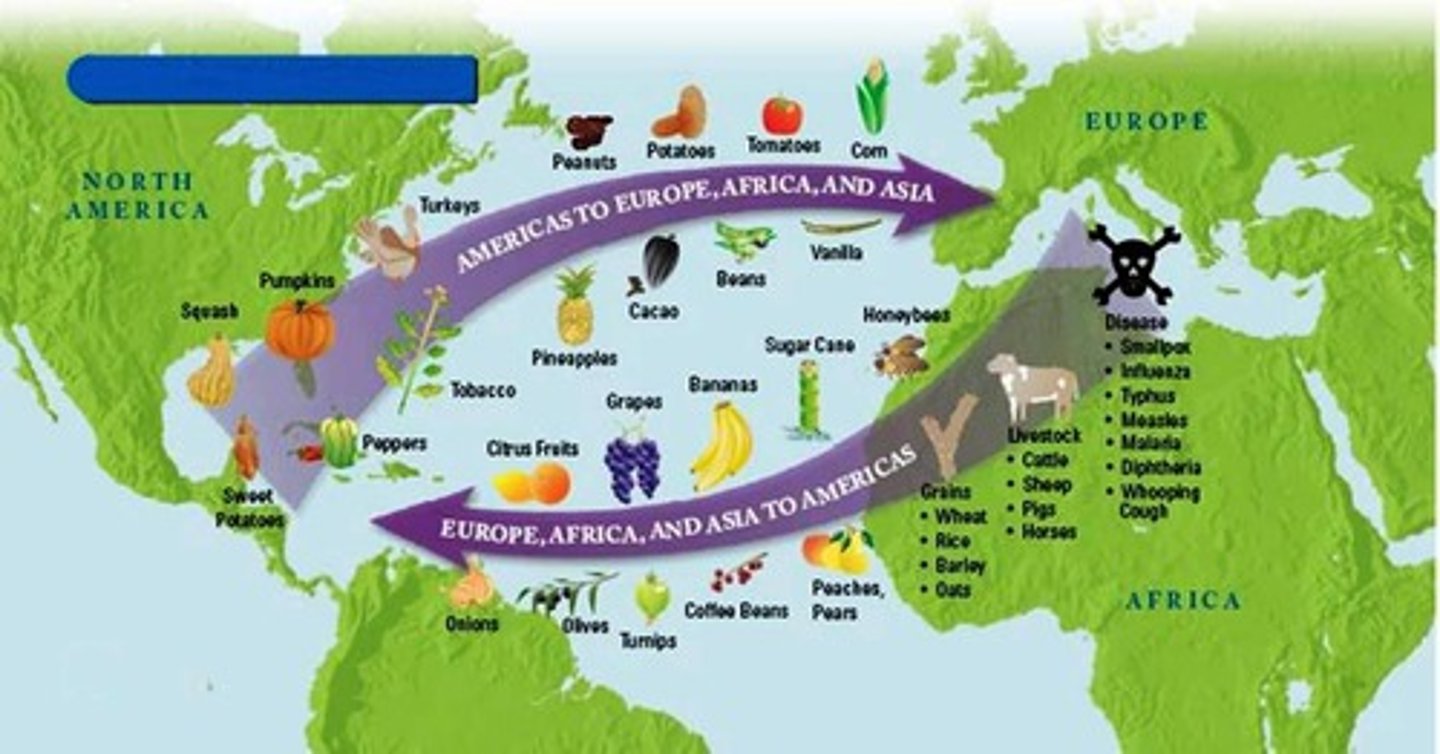
Mercantilism
An economic policy under which nations sought to increase their wealth and power by obtaining large amounts of gold and silver and by selling more goods than they bought; colonies were crucial in the accumulation of wealth
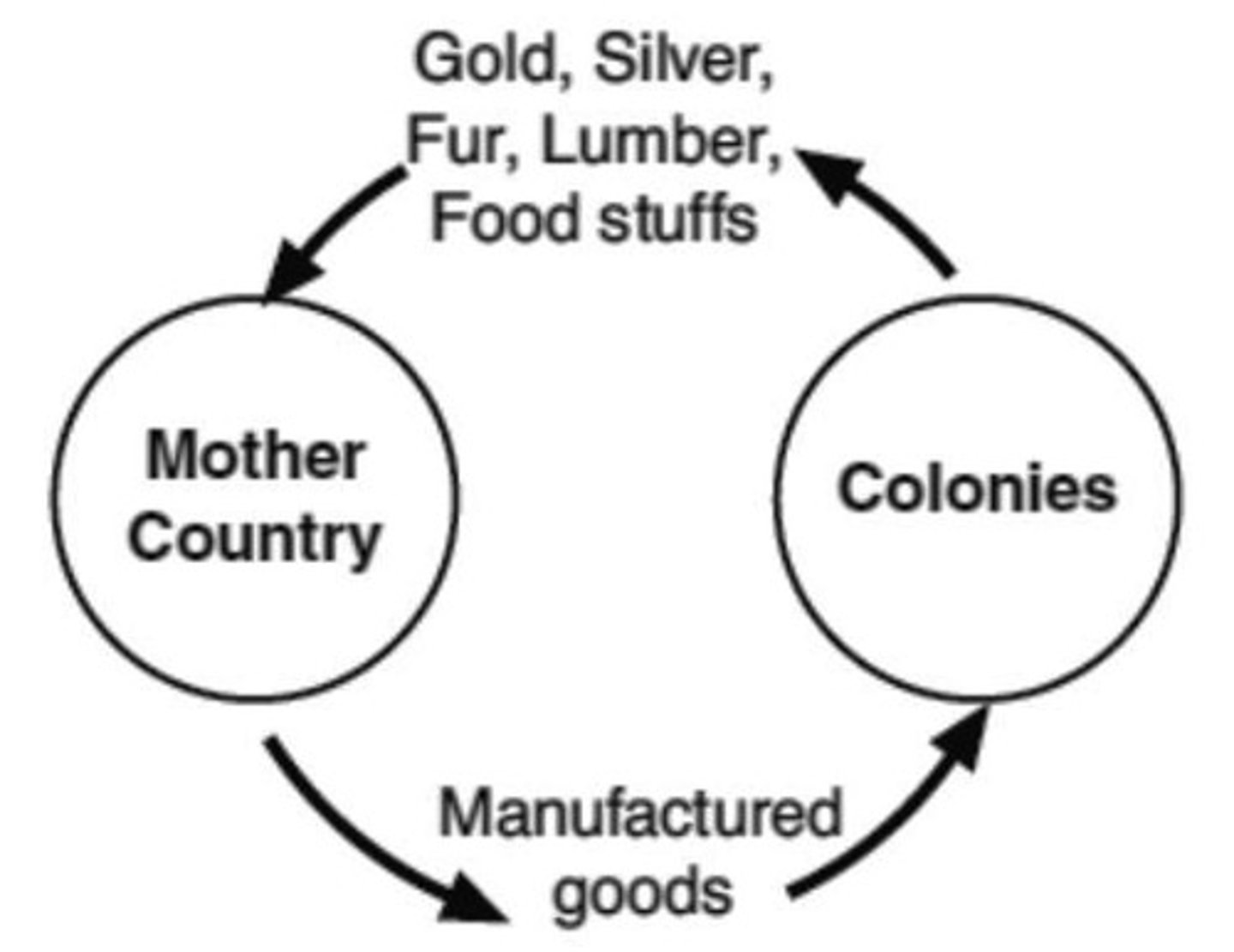
The Great Dying
Term used to describe the devastating demographic impact of European-borne epidemic diseases on the Americas.
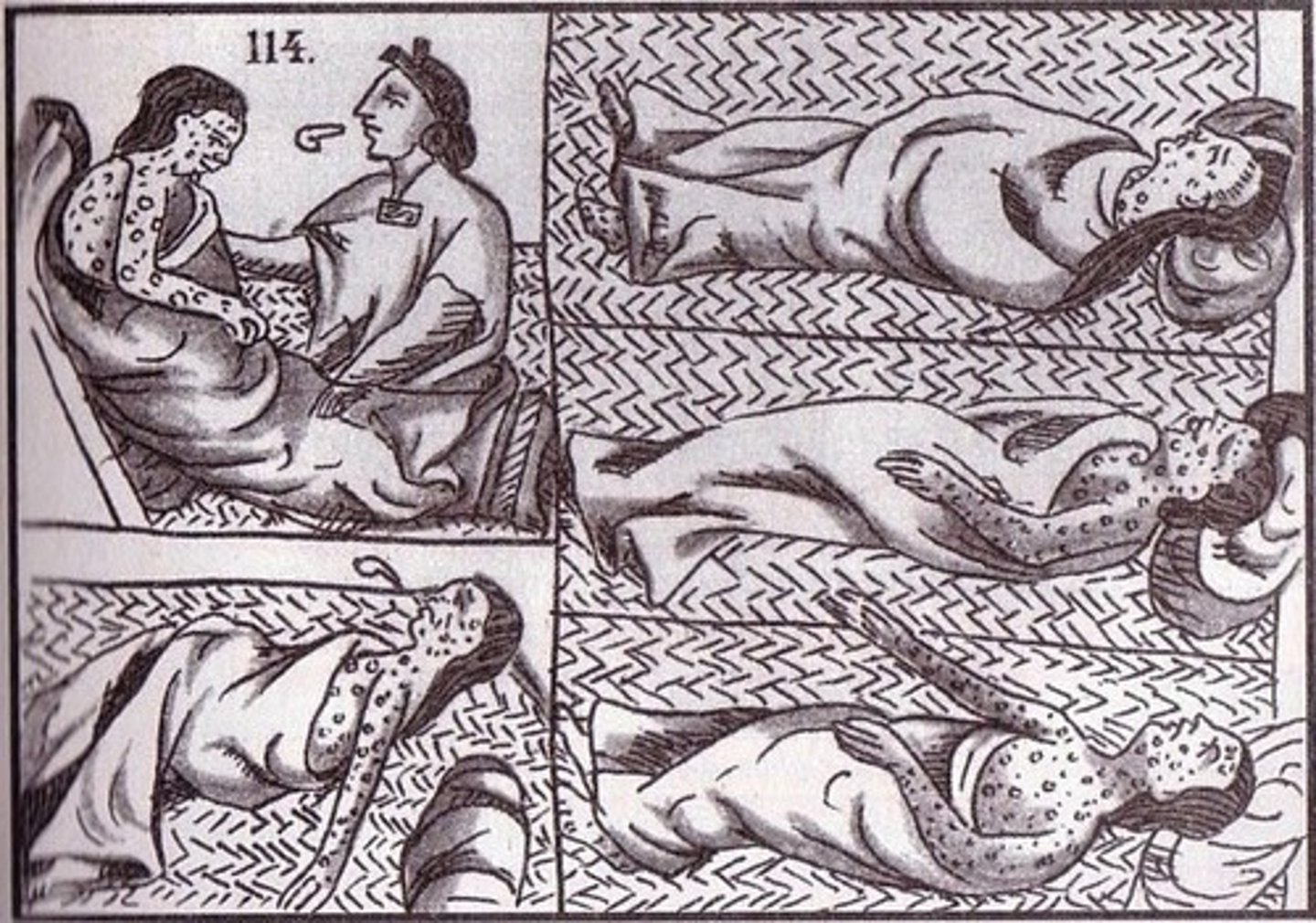
Chattel Slavery
Absolute legal ownership of another person, including the right to buy or sell that person; the form of slavery utilized in the Americas during the trans-Atlantic slave trade
Mita System
economic system in Inca society where people paid taxes with their labor and what they produced; later exploited by the Spanish as they forced Incas to mine silver
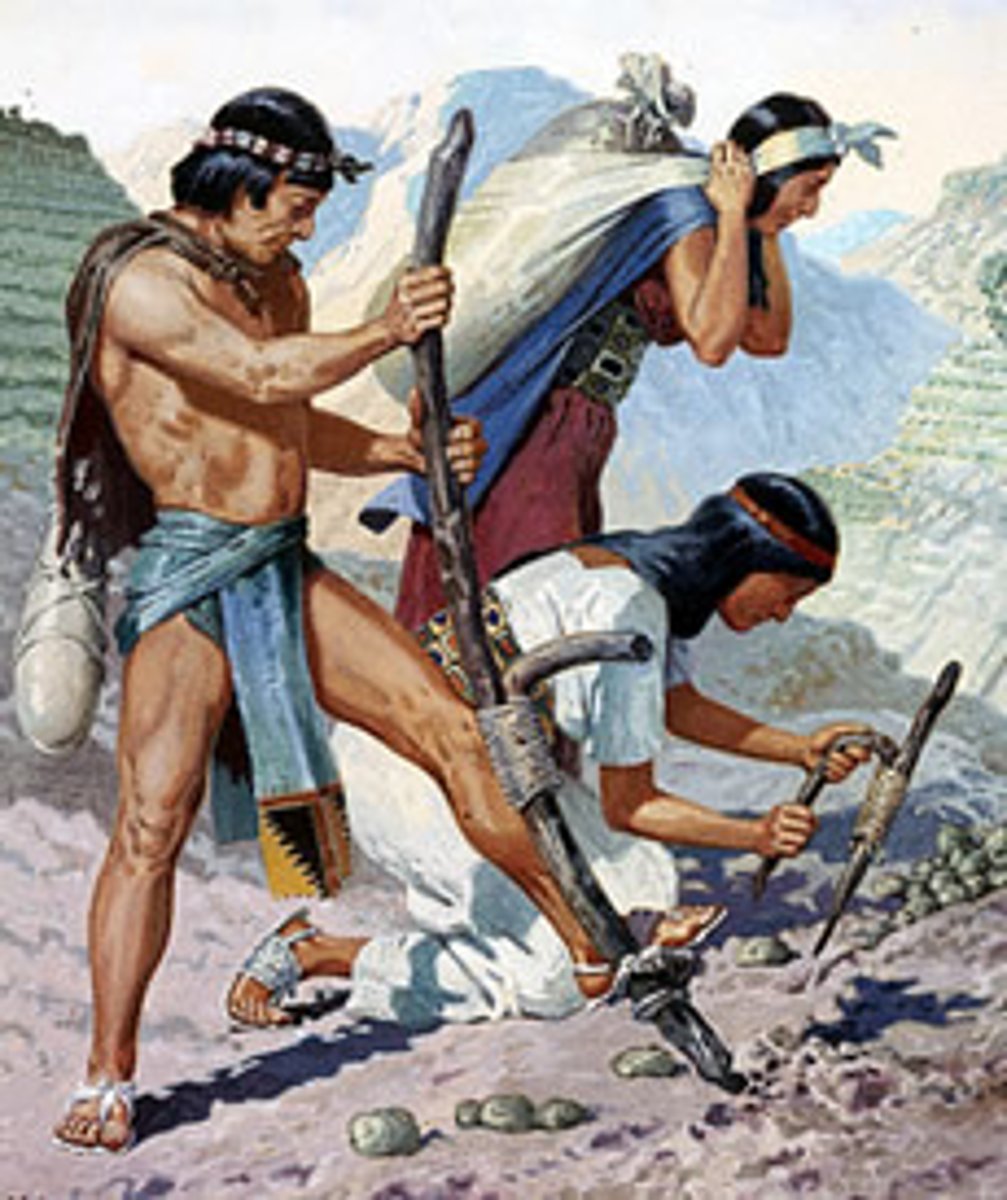
Indentured Servitude
A worker bound by a voluntary agreement to work for a specified period of years often in return for free passage to an overseas destination. Before 1800 most were Europeans; after 1800 most indentured laborers were Asians.
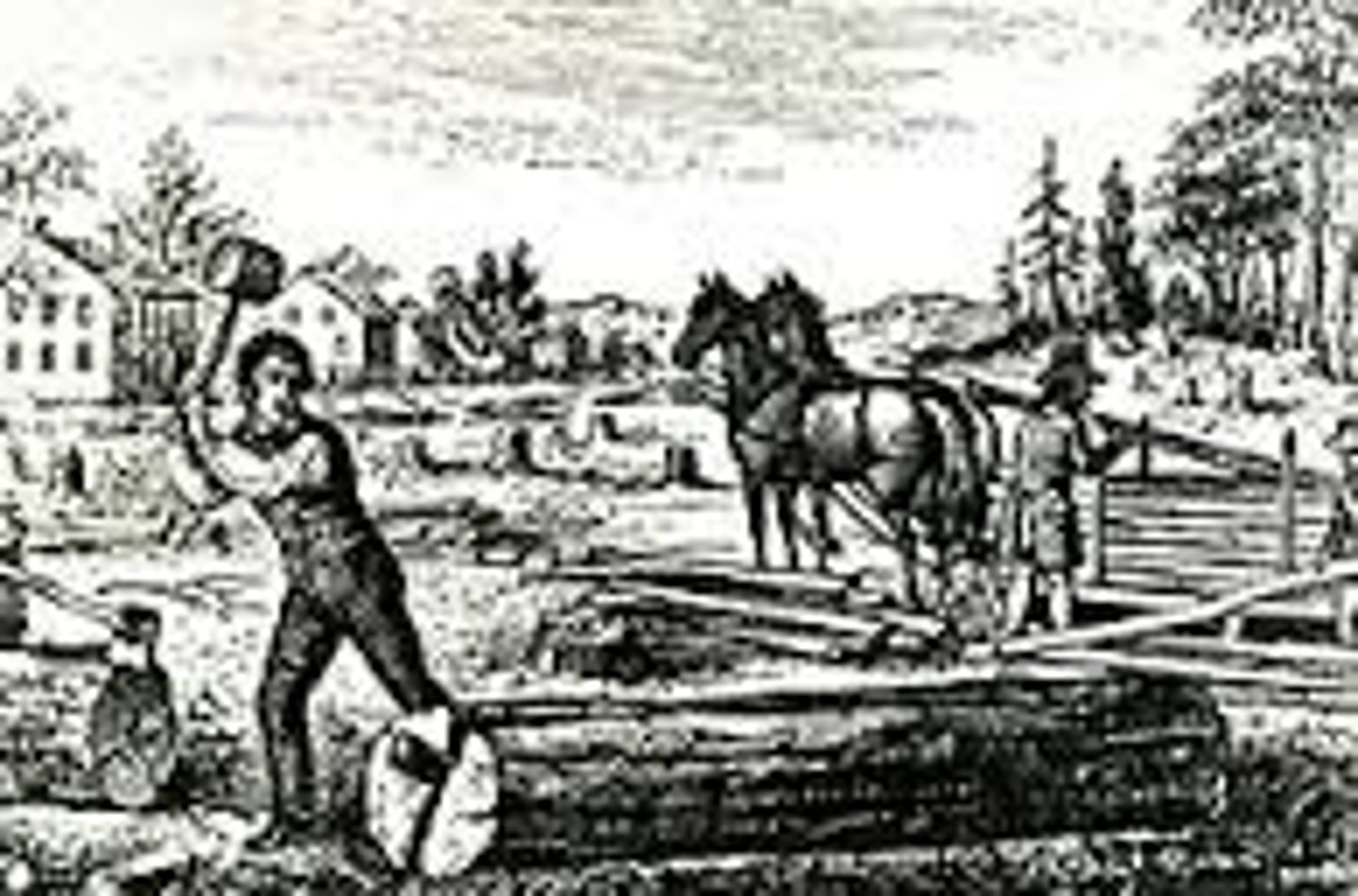
Encomienda
A grant of land made by Spain to a settler in the Americas, including the right to use Native Americans as laborers on it
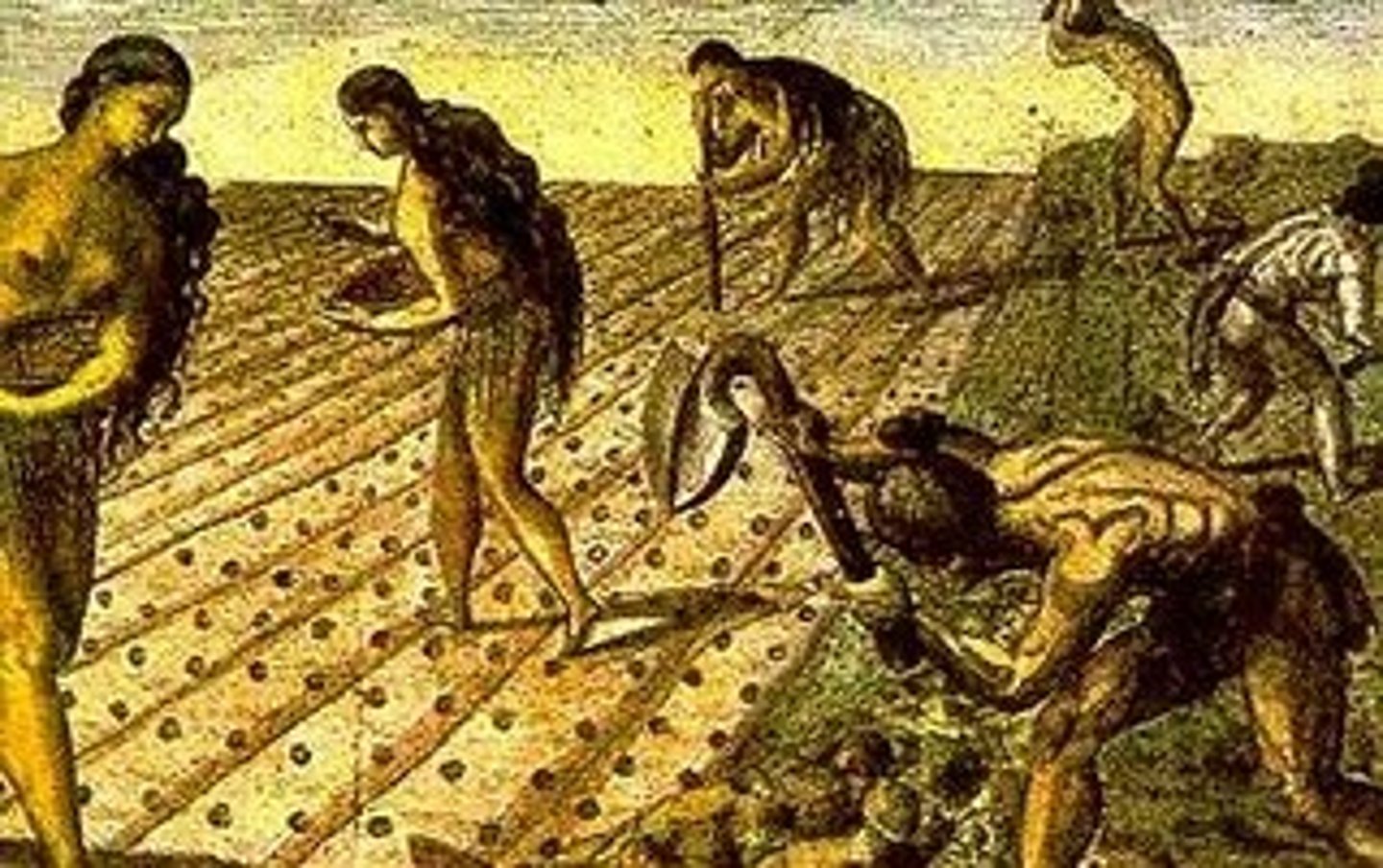
Hacienda
Spanish estates in the Americas that were often plantations. They often represent the gradual removal of land from peasant ownership and a type of feudalistic order where the owners of would have agreements of loyalty but would retain control over the actual land. This continued into the 20th century.
joint-stock company
A company made up of a group of shareholders. Each shareholder contributes some money to the company and receives some share of the company's profits and debts; used by European rulers to finance exploration and were used by rulers to compete against one another in global trade
Royal chartered monopoly companies
Groups of private investors who paid an annual fee to France and England in exchange for a monopoly over trade to Indian Ocean colonies
Vodun
or voodoo is a New World syncretic faith that combines the animist faiths of West Africa with Roman Catholic Christianity; evidence of the syncretism created when European and African beliefs merged in the Americas
Santeria
Originating in Cuba, a religion that blends African traditions and Christian beliefs
Casta Paintings
Paintings that show the racial mixing of a family. Shows hierarchy of society.
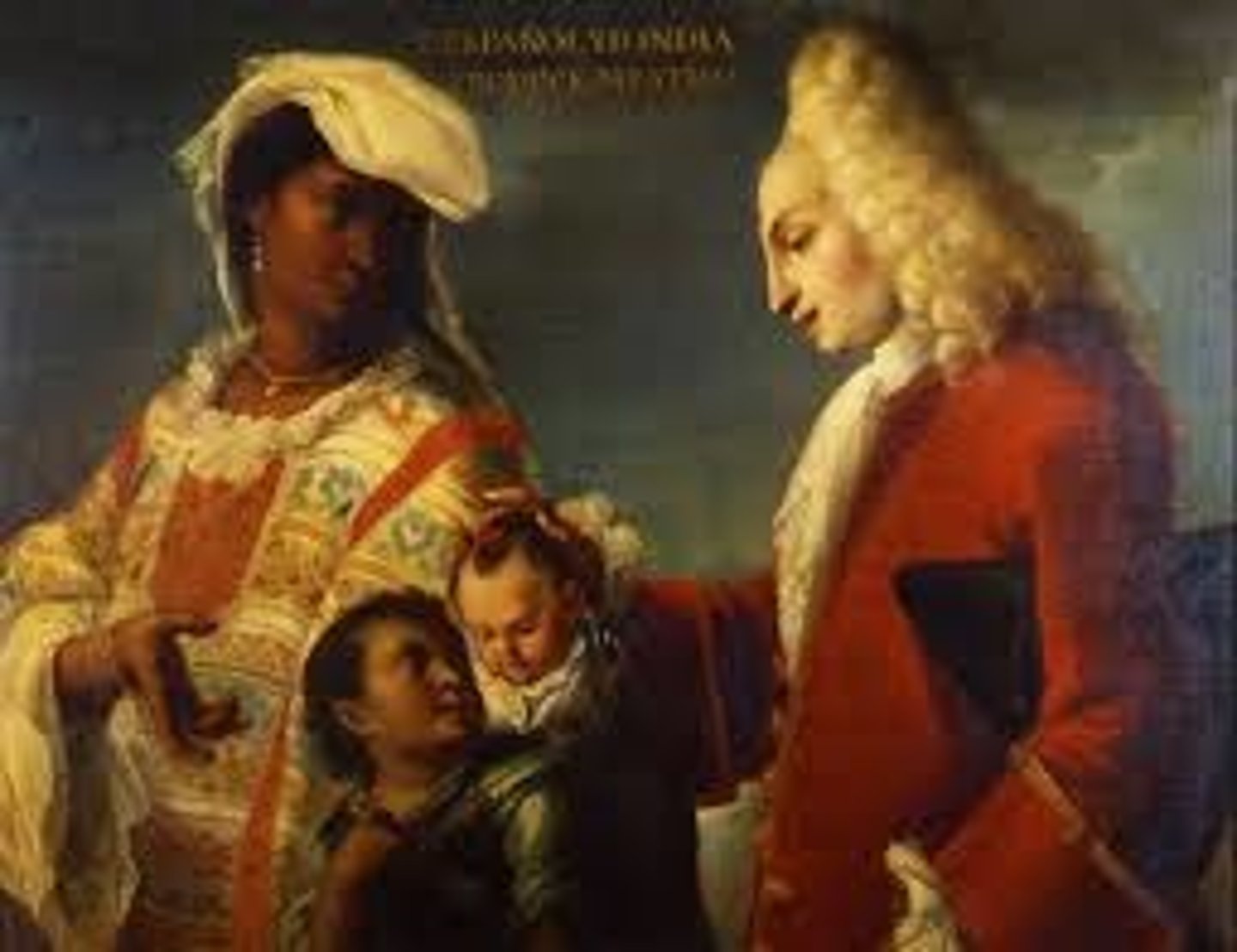
Mestizo
The term used by Spanish authorities to describe someone of mixed native American and European descent.
Mulatto
The term used in Spanish and Portuguese colonies to describe someone of mixed African and European descent.
Creoles
Descendants of Spanish-born but born in Latin America; resented inferior social, political, economic status.
Peninsulares
Spanish-born, came to Latin America; ruled, highest social class.

Fronde
A series of violent uprisings during the early reign of Louis XIV triggered by growing royal control and increased taxation
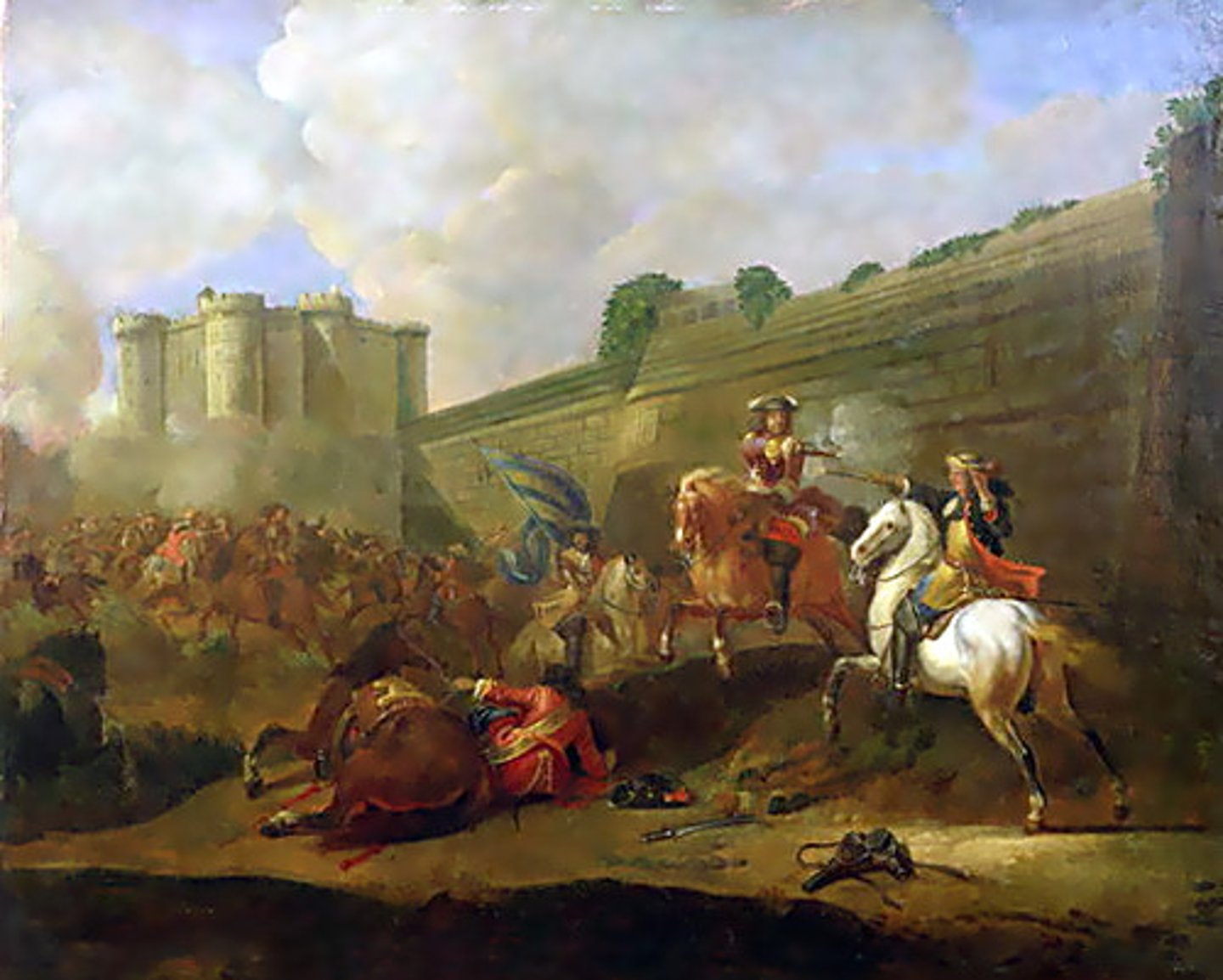
Nat Turner's Rebellion
a slave rebellion led by Nat Turner that took place in Virginia in 1831; one example of slave resistance challenging existing authorities in the Americas
British East India Company
A British joint stock company that controlled most of India during the period of imperialism. This company controlled the political, social, and economic life in India for more than 200 years.
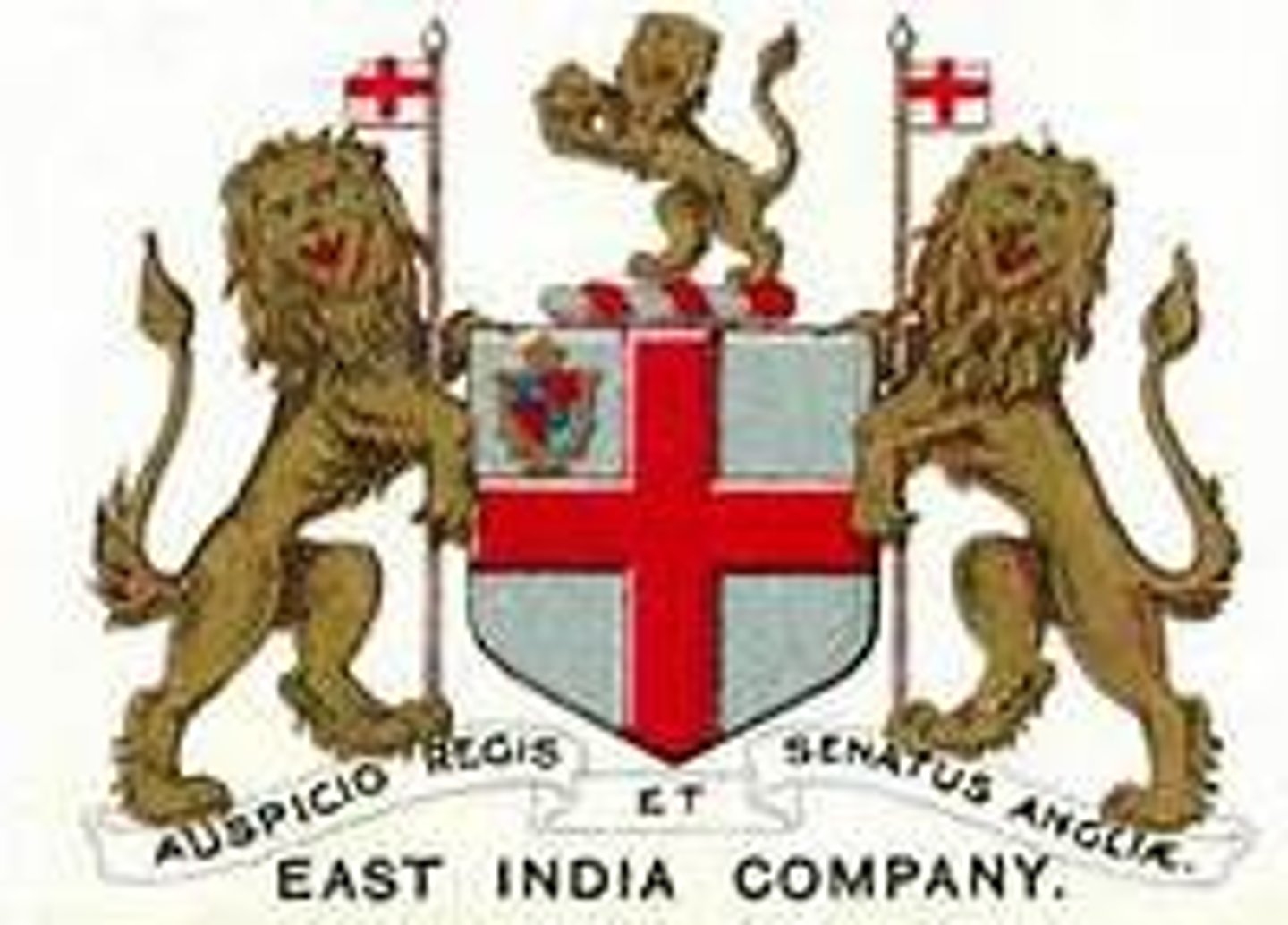
Dutch East India Company
Government Dutch-chartered joint-stock company that controlled the spice trade in the East Indies.
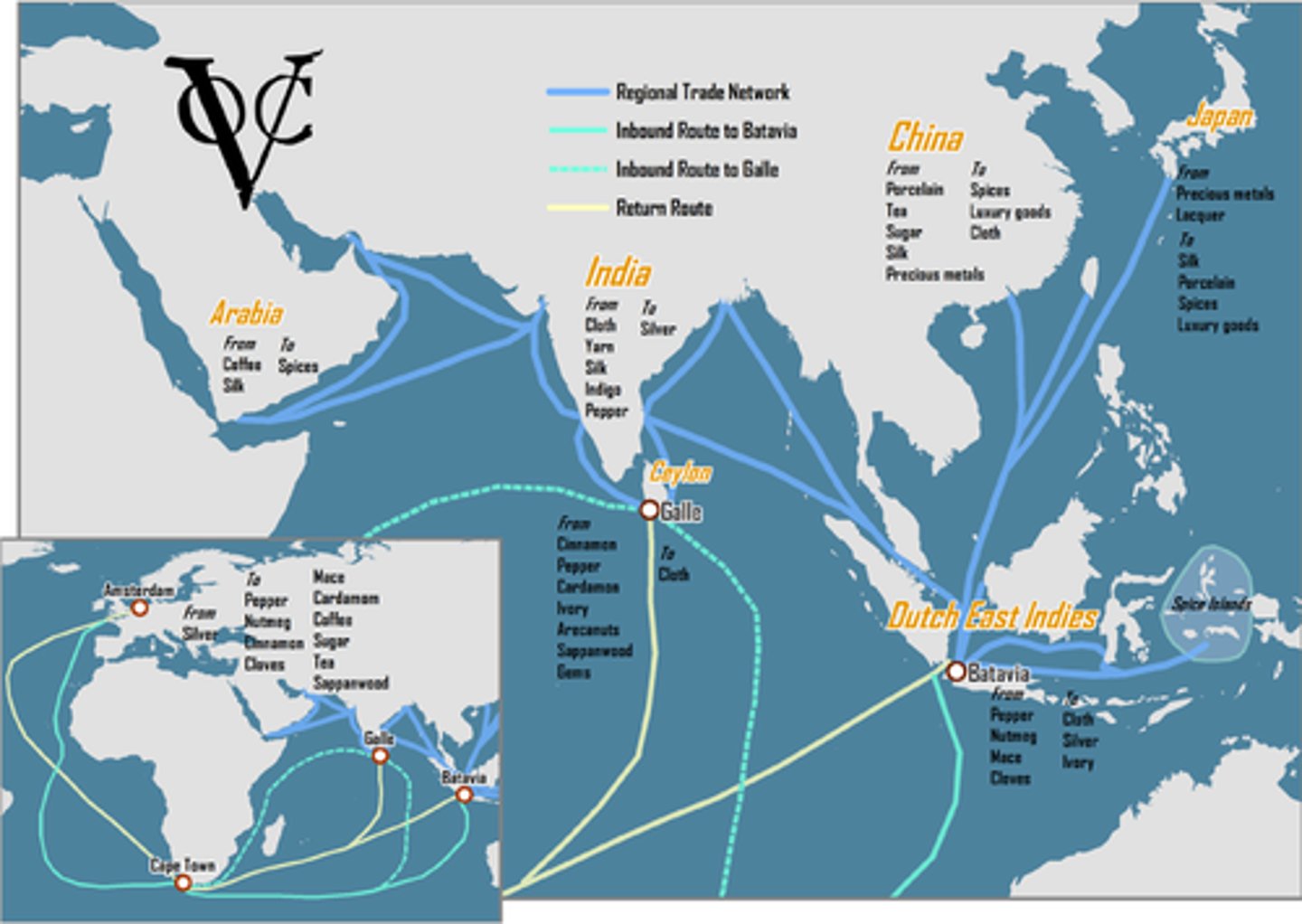
Triangular Trade
A three way system of trade during 1600-1800s whereby Africa sent slaves to the Americas, the Americas sent raw materials to Europe, and Europe sent guns and rum to Africa in exchange for slaves